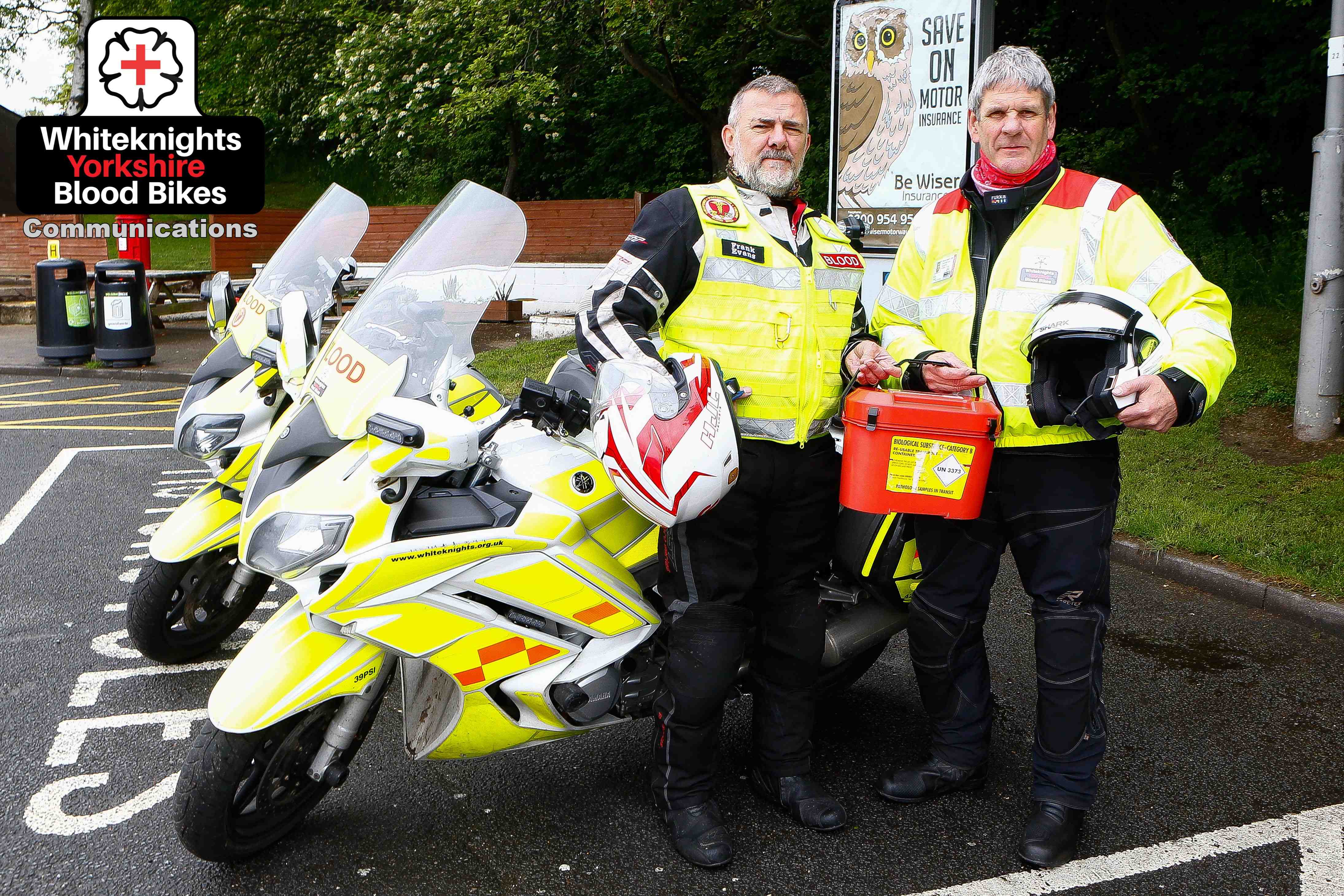
Whiteknights Yorkshire Blood Bikes have this morning been deployed to join a national relay to convey a pioneering treatment to tackle the habitual re-infection of patients suffering from the antibiotic resistant super bug, Clostridium Difficile.
In a pioneering treatment project led by Birmingham University’s School of Immunity and Infection, patients having not recovered following three-courses of antibiotics are being given Faecal Microbiota Transplants to save them from the potentially life-threatening infection.
Scientists claim a success rate in excess of 90% of patients treated, recover quickly and break the cycle of re-infection. The “good” bacteria compete against the Clostridium Difficile in the patient’s gut and returns them to health.
There are currently fewer than 5 patients in the UK with the rare super-bug fighting Gastrointestinal bacteria that is being transplanted into other patients.
This is the first time the voluntary blood bike service in this region has been called upon to deliver a liquid stool sample for the benefit of patients who are mostly elderly, post-surgery and with a chronic health condition.
Originating at University Hospitals Birmingham NHS Foundation Trust’s Queen Elizabeth Hospital, a volunteer Advanced-Qualified rider from Whiteknights Yorkshire Blood Bikes received the treatment sample from the rider from Staffordshire, Shropshire & Cheshire Blood Bikes at Hartshead Moor Services; before conveying it to Scarborough General Hospital.
Chairman of Whiteknights Yorkshire Blood Bikes, Andrew Foster, said this morning: “Many people who work within the healthcare industry are all too familiar with the impact of Clostridium Difficile bacteria – ranging from diarrhoea to an alarming mortality rate amongst the elderly.
“We are delighted to continue to support Yorkshire patients and the NHS by making this important delivery, free of charge by our dedicated volunteers.”
Pictured handing over the FMT sample for the first time in Yorkshire is Frank Evans (SSCBB) and David Hardcastle (WKYBB)